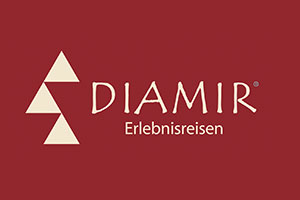Eritrea
Travel tips for Eritrea
Top 5 Experiences
Eritrea – meaning „Red Sea“ has more to offer than beach escape. Here are some highlights:

Asmara
Declared a UNESCO World Heritage Site, Asmara’s cityscape is shaped by thousands of Art Deco, futurist, modernist, and rationalist buildings, crafted during the era of Italian Eritrea.

Dankalia
A 600km stretch of surreal landscapes, from volcanic craters to salt flats, known as one of Earth’s hottest places. Home to the legendary Afar people, Dankalia beckons intrepid travellers seeking the extraordinary.

Dahlak Archipelago
Explore underwater volcanoes, pumice formations, and shipwrecks for a captivating diving experience, encountering unique marine life, including more than 300 fish species as well as the the legendary Dugon dugon.

Keren
Eritrea’s third-largest city, nestled in a valley surrounded by stunning peaks. With vibrant markets, diverse festivals reflecting ethnic diversity, and historic sites like the Tigu Egyptian fort, 19th-century railway station, and Sayed Bakri Mausoleum, Keren has loads to offer.

Eritrean Coffee Cafés
Step into vintage-inspired coffee havens where the charm of Italian influence meets local tradition. Cafés lined with vintage Italian coffee machines serve up high-quality espresso, cappuccinos, and lattes, creating a delightful blend of Eritrean and Italian coffee culture.
Tourist infrastructure
Eritrea has made remarkable strides in rebuilding its infrastructure, with previously war-damaged roads now fully restored. While a historic railway line from Asmara to Massawa awaits maintenance, efforts to enhance tourist experiences are evident. Buses connect major towns, and in Asmara, taxis and shared taxis („Line-Taxis“) offer convenient transportation options. Main roads are well-paved, although unpaved routes may pose challenges during the rainy season.
In select cities, there is a growing tourism infrastructure with a range of accommodation options.
Climate and travel season
The peak season for travel is typically from October through March, marked by favorable weather conditions and heightened tourist activity. The transitional periods of April and September are considered the shoulder seasons, characterized by a more moderate climate and fewer crowds. The low season spans from May to August, during which temperatures rise significantly, making it a less popular time for travel due to the intense heat.
Entry requirements
For entry requirements and visa information, please refer to the website of your respective embassy. Links provided below.
Impressions from Eritrea
(Click to enlarge)
Stories
International Hotel Chains Are Driving the Hotel Boom in Africa
Frankfurt, 03 April 2024 - The "Big 5" of global hotel chains - Accor, Hilton, IHG, Marriott International and Radisson ...
Internationale Hotelketten treiben den Hotelboom in Afrika voran
ReThinking Africa Initiative setzt sich für Investitionen in Afrikas Tourismuswirtschaft ein Frankfurt, 03. April 2024. Die „Big 5“ der globalen Hotelketten ...
Voice4Africa x ReThinking Africa News March
KLEBER Group x ReThinking Africa News March 2024 Content Foreword Investment in Africa's tourism industry as a driver for sustainable ...
Our partners in Eritrea
Visas, entry and updates
Current accessibility
Corona precautionary measures
Status: 03.03.2022












